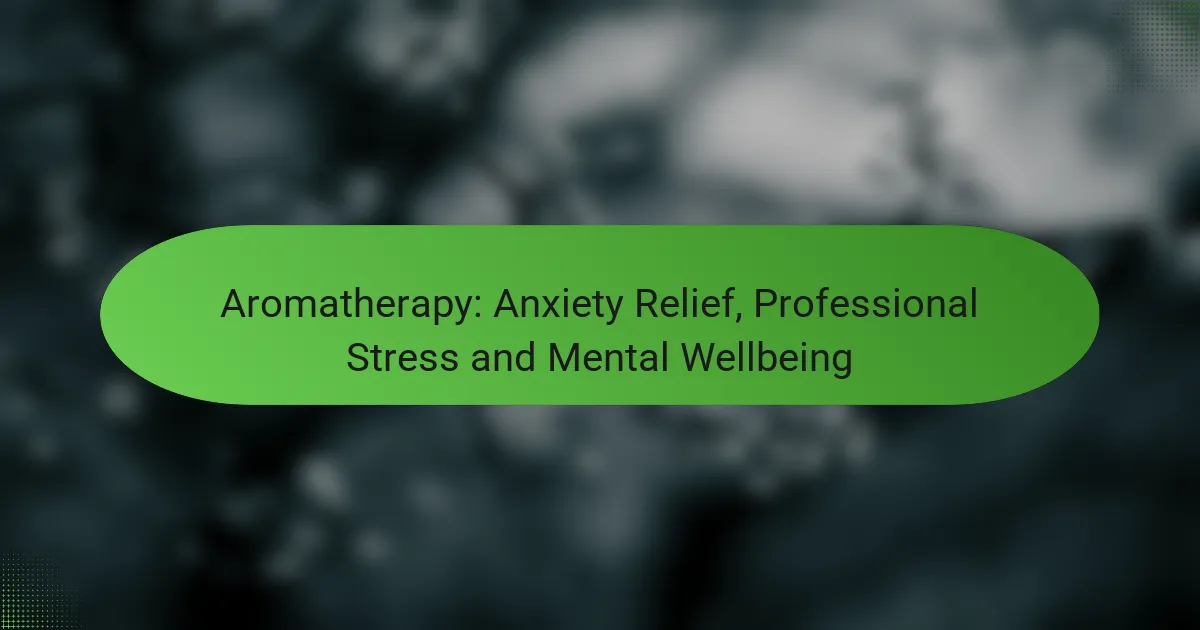Acupuncture is an ancient healing modality that enhances mental clarity and supports student performance by stimulating specific points on the body. This practice promotes relaxation, improves cognitive function, and helps balance energy flow, leading to better focus and reduced anxiety. As students face academic pressures, acupuncture can serve as a valuable tool for enhancing memory and overall mental well-being.

How Can Acupuncture Improve Mental Clarity?
Acupuncture can enhance mental clarity by stimulating specific points on the body, promoting relaxation and improving overall cognitive function. This ancient practice helps to balance energy flow, which can lead to better focus, reduced anxiety, and improved emotional well-being.
Enhances focus and concentration
Acupuncture can significantly enhance focus and concentration by increasing blood flow to the brain and reducing distractions. By targeting specific acupuncture points, individuals may experience heightened alertness and the ability to concentrate on tasks for longer periods.
Students, for example, may find that regular acupuncture sessions help them maintain attention during lectures or while studying, leading to better academic performance.
Reduces anxiety and stress
One of the primary benefits of acupuncture is its ability to reduce anxiety and stress levels. The treatment encourages the release of endorphins, which are natural stress relievers, helping to calm the mind and body.
By alleviating anxiety, acupuncture allows students to approach their studies with a clearer mind, ultimately improving their performance and retention of information.
Improves sleep quality
Acupuncture can improve sleep quality by addressing underlying issues that disrupt rest, such as stress and anxiety. Better sleep leads to enhanced cognitive function, as the brain consolidates information and rejuvenates during deep sleep stages.
For students, achieving restorative sleep can be crucial for memory retention and overall mental clarity, making acupuncture a valuable tool for academic success.
Boosts cognitive function
Regular acupuncture treatments may boost cognitive function by enhancing neural connections and improving brain health. This can lead to sharper thinking, quicker problem-solving abilities, and better memory retention.
Incorporating acupuncture into a study routine can help students process information more effectively, which is essential for exams and complex subjects.
Supports emotional balance
Acupuncture supports emotional balance by regulating neurotransmitters and hormones that influence mood. This can help students manage the emotional ups and downs that often accompany academic pressures.
By fostering a sense of emotional stability, acupuncture can help students maintain a positive outlook, which is essential for sustained mental clarity and performance in their studies.

What Are the Benefits of Acupuncture for Students?
Acupuncture offers several benefits for students, including improved focus, enhanced memory, and reduced stress. By stimulating specific points on the body, this ancient practice can help students perform better academically and maintain overall mental clarity.
Increases academic performance
Acupuncture can lead to increased academic performance by enhancing concentration and cognitive function. Students who receive regular acupuncture treatments often report improved focus during study sessions and better engagement in class.
Research suggests that acupuncture may help balance neurotransmitters, which play a crucial role in attention and learning. This balance can lead to a more effective study routine, allowing students to absorb information more efficiently.
Improves memory retention
One of the key benefits of acupuncture is its potential to improve memory retention. By promoting blood flow and oxygenation to the brain, acupuncture can enhance neural connectivity, which is essential for storing and recalling information.
Students may find that regular sessions help them remember facts and concepts more effectively, particularly during exam preparation. Incorporating acupuncture into a study regimen can serve as a valuable tool for retaining information over the long term.
Enhances overall well-being
Acupuncture contributes to overall well-being by promoting relaxation and reducing physical tension. This holistic approach not only addresses academic challenges but also supports emotional health, which is vital for students facing the pressures of school.
By alleviating symptoms of anxiety and fatigue, acupuncture can help students maintain a balanced lifestyle. This balance is crucial for sustaining energy levels and motivation throughout the academic year.
Reduces exam-related stress
Exam-related stress is common among students, and acupuncture can be an effective way to manage it. The treatment helps lower cortisol levels, which are often elevated during high-pressure situations like exams.
Students may benefit from scheduling acupuncture sessions leading up to exams to help calm nerves and improve focus. This proactive approach can create a more positive mindset, allowing students to perform at their best when it matters most.

What Techniques Are Used in Acupuncture?
Acupuncture employs various techniques to stimulate specific points on the body, promoting healing and balance. These methods can vary in approach, tools, and effects, catering to different health needs and preferences.
Traditional Chinese acupuncture
Traditional Chinese acupuncture involves inserting thin needles into specific points along the body’s meridians to restore the flow of Qi (energy). Practitioners often consider the patient’s overall health, lifestyle, and emotional state when determining treatment plans. Sessions typically last between 30 to 60 minutes, and patients may feel a slight sensation as the needles are inserted.
This technique is widely recognized for its effectiveness in treating pain, stress, and various chronic conditions. It is essential to seek a licensed acupuncturist familiar with traditional practices to ensure safety and efficacy.
Electro-acupuncture
Electro-acupuncture combines traditional acupuncture with electrical stimulation. After inserting needles, a small electrical current is applied, enhancing the stimulation of acupuncture points. This method is often used for pain relief and muscle relaxation, providing a more intense treatment experience.
Sessions may last around 20 to 40 minutes, and patients often report quicker relief compared to traditional methods. However, individuals with certain medical conditions, such as heart issues, should consult their healthcare provider before trying electro-acupuncture.
Acupressure
Acupressure utilizes finger pressure on acupuncture points instead of needles, making it a non-invasive alternative. This technique is effective for self-care and can be used to alleviate stress, headaches, and digestive issues. It is particularly beneficial for those who may be uncomfortable with needles.
Practitioners recommend applying firm pressure for 30 seconds to a minute on targeted points. This method can be easily integrated into daily routines, allowing individuals to manage their well-being conveniently.
Laser acupuncture
Laser acupuncture uses low-level lasers to stimulate acupuncture points without needles. This technique is suitable for those who fear needles or have sensitive skin. Laser acupuncture is often used for pain management, inflammation reduction, and promoting healing.
Sessions typically last around 15 to 30 minutes, and patients may experience a soothing warmth at the treatment site. While effective, it is crucial to seek treatment from a qualified practitioner to ensure proper technique and safety.

What Should Students Expect During an Acupuncture Session?
Students can expect a calm and structured environment during an acupuncture session, where a licensed practitioner will assess their needs and create a tailored treatment plan. The experience typically involves an initial consultation, followed by the insertion of fine needles at specific points on the body to promote healing and mental clarity.
Initial consultation and assessment
The initial consultation is crucial as it allows the acupuncturist to understand the student’s health history, current concerns, and specific goals. During this assessment, students should be prepared to discuss their lifestyle, stress levels, and any physical symptoms they may be experiencing.
This conversation helps the practitioner identify the most effective acupuncture points to target, ensuring that the treatment aligns with the student’s individual needs. Students should feel comfortable asking questions to clarify any uncertainties about the process.
Personalized treatment plan
After the assessment, the acupuncturist will develop a personalized treatment plan tailored to the student’s goals, such as enhancing mental clarity or improving overall well-being. This plan may include a combination of acupuncture techniques and lifestyle recommendations to maximize the benefits.
Students should expect to receive guidance on what to do before and after sessions, including hydration and relaxation techniques, to enhance the effectiveness of the treatment. Open communication with the practitioner is essential to adjust the plan as needed.
Duration and frequency of sessions
Acupuncture sessions typically last between 30 to 60 minutes, depending on the treatment plan and individual needs. Students may start with one to two sessions per week, gradually adjusting the frequency based on their response to treatment and progress towards their goals.
Consistency is key for optimal results, so students should aim to stick to the recommended schedule. It’s common for practitioners to reassess the treatment plan after a few sessions to ensure it remains effective and aligned with the student’s evolving needs.

How to Choose an Acupuncturist in Your Area?
Choosing an acupuncturist involves evaluating their qualifications, experience, and patient feedback. Start by looking for licensed practitioners who adhere to local regulations and have a solid reputation.
Check credentials and certifications
Verify that your acupuncturist holds the necessary licenses and certifications required in your area. In the United States, for example, practitioners should be certified by the National Certification Commission for Acupuncture and Oriental Medicine (NCCAOM) and have a state license.
Look for additional training in specific areas, such as sports acupuncture or pain management, which can indicate a more specialized skill set. A well-qualified acupuncturist will often display their credentials in their office or on their website.
Read reviews and testimonials
Reading reviews and testimonials from previous patients can provide insight into the acupuncturist’s effectiveness and approach. Check platforms like Google, Yelp, or health-specific sites to gather a range of opinions.
Pay attention to comments about the practitioner’s communication style, treatment outcomes, and overall patient experience. A high number of positive reviews can indicate a reliable and effective acupuncturist, while consistent negative feedback may be a red flag.



